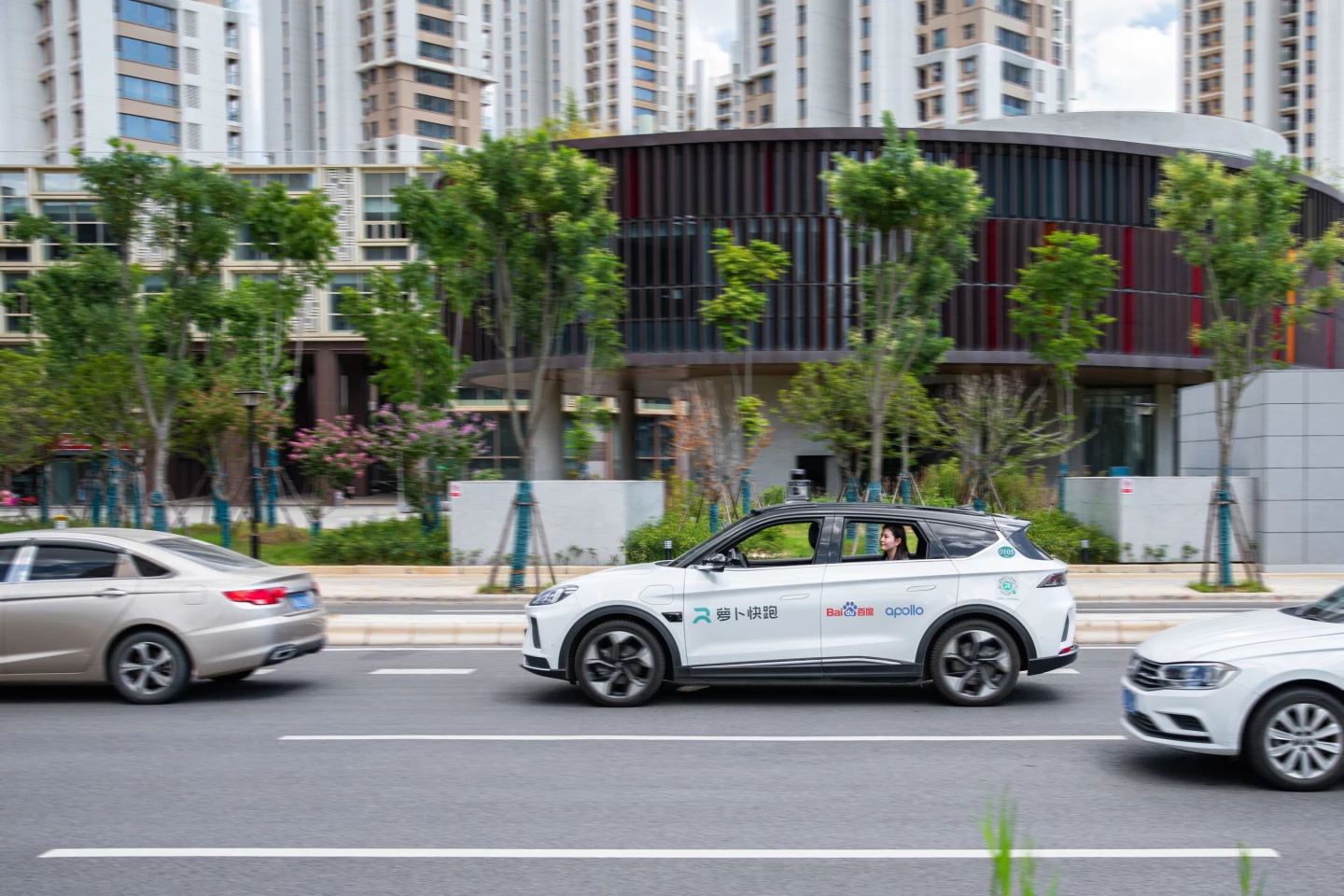China's first fully autonomous, commercial robotaxi rides – with no safety drivers – are about to open for public passengers in Wuhan and Chongqing, marking an inflection point for one of the key technological revolutions of the 21st century.
It feels like driverless Johnnycabs have been just around the corner for a decade now, but now they're finally beginning to hit the streets as an option for paying customers. GM subsidiary Cruise launched a late-night completely driverless service for the San Francisco suburbs back in June, and Wayno has been taking passengers without a backup driver since as early as October 2020.
Now China has come online. The two newly-issued permits allow Baidu to charge for driverless rides within a 13-sq-km (5-sq-mi) area in Wuhan, between 9 am and 5 pm, and within a larger 30-sq-km (11.6-sq-mi) zone in Chonqing's Yongchuan district between 9.30 am and 5.30 pm – so while they're currently set to avoid peak hours, they'll be mixing it up with plenty of daytime traffic.
Each zone will run five 5th-generation Apollo cars, with remote drivers ready to assume control if the vehicles get themselves into any sticky situations. Home base will be watching closely through the cars' camera systems, particularly in these early days.

Baidu's Apollo Go is already the world's biggest robotaxi company, with operations already live in all tier-one Chinese cities using the same 5th-gen car, with backup drivers on board. The company recently revealed its 6th-gen design, its first ground-up fully autonomous car for mass production. The Apollo RT6 will cost just RMB 250,000 (US$37,000) to manufacture, says Baidu, and its optional, removable steering wheel and generous, configurable cabin space will make it one of the first proper mobility pod-type services when it hits the streets commercially in 2023.
Presumably, we'll start to see more and more of these operations starting up in the coming months and years. Each represents a step towards a potentially cheaper, safer, more convenient mobility service – but they're also the first nails in the coffin of a massive employment sector.
According to Daxue Consulting, China's ride-sharing services alone employ some 30 million drivers between them. That doesn't include taxi drivers, delivery drivers, truck drivers, bus drivers or a range of other professional drivers. It seems likely that within a decade and change, the doors will be flung open to fully autonomous vehicles in all these categories, providing cheaper, safer, round-the-clock robotic replacements for human drivers. That'll be a huge cohort of primarily middle-aged men hitting the pavement without widely transferrable skills, and governments should definitely look at this as a potential societal time-bomb in the making.
Truly, we are living through some interesting times, folks.
Source: Baidu






